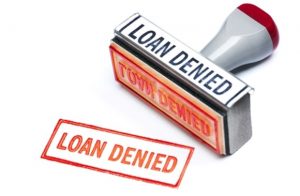 2022 has been nothing but bad news financially for most Canadians. Our stock portfolios are worth a lot less, everything we buy costs more, and interest rates are making our mortgages and other loans a lot more expensive. More than ever it is time to tread carefully and avoid any financial mistakes, so we gathered up the top 5 financial mistakes you definitely want to steer clear of for the rest of this year and beyond!
2022 has been nothing but bad news financially for most Canadians. Our stock portfolios are worth a lot less, everything we buy costs more, and interest rates are making our mortgages and other loans a lot more expensive. More than ever it is time to tread carefully and avoid any financial mistakes, so we gathered up the top 5 financial mistakes you definitely want to steer clear of for the rest of this year and beyond!
1. Not understanding your loan agreements.
It is shocking to see how many people fail to understand the terms and conditions before entering into potentially life-changing contracts like a mortgage or student loan. Don’t assume your student loan will have a low interest rate and make sure to investigate the amount of your monthly payment post-graduation, and how many years you will be paying.
Mortgages can be complicated, but that’s no excuse and a good mortgage broker will take the time to answer all of your questions. Trigger rates in mortgage agreements have recently been in the news with rising interest rates and are a good example of people not full understanding what they signed.
2. Not having any system to track your expenses.
“I don’t know where my money goes” is a common refrain as prices continue to rise. However, given the number of mobile applications, web programs and other online tools available to simplify this task (or just use a pencil!), there isn’t any excuse. Regardless of how much income you have coming in, monitoring and controlling expenses is critical step as plenty of high-earning-now-bankrupt athletes and actors have proven!
3. Investing before paying off debt.
The question of whether it’s better to invest any “extra” cash or pay down debt needs a re-think given recent economic changes. In 2021, mortgages and lines of credit could be had for around 2% and most stock indexes reported double-digit gains. Paying down those debts with money you could have invested in the markets was not the best option.
A year later, borrowing rates have doubled in many cases (mortgages for example) and financial markets are wobbly at best, with many deep into the red year to date. These aren’t the only factors to consider, and you need to do the math for your situation, but the case for paying down debt is getting stronger by the day.
In case you are wondering, credit card debt is another deal altogether! In almost every case you would be much better off by throwing all you have at the unpaid balance before investing any of that money.
4. Not saving and investing.
As higher prices and interest rates suck up more of our disposable cash, something has to give, and putting a little bit of money away each month may be on the chopping block. If you need the money for essentials like food or rent, then you have no choice but be honest with yourself on what is essential! Once you break the saving habit it’s hard to get it back and saving is not really a discretionary expense unless you have an alternative plan to fund your retirement? Catching up on savings might be possible when things get better, but that could be years and the earlier you start, the more your savings are going to grow.
5. Spending too much on a car.
You should be aiming for 15% of your take-home pay for total car costs including the loan payment, insurance and gas. This leaves you between $30K and $35K for a vehicle if you make $100k annually. That’s not a lot given new and used cars have been in short supply in 2022 and prices are through the roof. Although repairs aren’t cheap and you won’t get that new car smell, hanging on to your current ride may be the best option financially.
At the end of the day, financial knowledge is the best defense for avoiding mistakes and we hope you continue to learn with us.
View more blogs here
#priceteammortgagesfergus #priceteammortgagesguelph #dominionlending #canada #ontario #fergus #guelph #ontariorealestate #guelphrealestate #waterloorealestate #mortgagebrokernearme #priceteammortgagesfergus #priceteammortgagesguelph #dominionlending #canadianmortgage #canadianmortgagebroker #mortgages #mortgagebroker #priceteam #canadianmortgageprofessionals #savemoney #homebuying #firsttimehomebuyer #bestbroker #tips #mortgagetips #financial #financialmistakes


 Buying a home is one of the largest investments you will ever make! In order to make your home hunting experience the best it can be, there are a few key mistakes to avoid and be aware of before you start your journey:
Buying a home is one of the largest investments you will ever make! In order to make your home hunting experience the best it can be, there are a few key mistakes to avoid and be aware of before you start your journey: The holiday season is certainly a time filled with joy, but it can be a very expensive time of year. Between gifts, travel, decorations, parties, and food, Canadians find themselves spending more during the season. According to a study by
The holiday season is certainly a time filled with joy, but it can be a very expensive time of year. Between gifts, travel, decorations, parties, and food, Canadians find themselves spending more during the season. According to a study by  2022 has been nothing but bad news financially for most Canadians. Our stock portfolios are worth a lot less, everything we buy costs more, and interest rates are making our mortgages and other loans a lot more expensive. More than ever it is time to tread carefully and avoid any financial mistakes, so we gathered up the top 5 financial mistakes you definitely want to steer clear of for the rest of this year and beyond!
2022 has been nothing but bad news financially for most Canadians. Our stock portfolios are worth a lot less, everything we buy costs more, and interest rates are making our mortgages and other loans a lot more expensive. More than ever it is time to tread carefully and avoid any financial mistakes, so we gathered up the top 5 financial mistakes you definitely want to steer clear of for the rest of this year and beyond! Your home is your biggest asset and it is important to protect it. When it comes to the various areas in your home, some key points for security are your windows, doors and exterior of your home.
Your home is your biggest asset and it is important to protect it. When it comes to the various areas in your home, some key points for security are your windows, doors and exterior of your home. So, you are ready to sell your home! Whether you are up or down-sizing, selling your home can feel like a large undertaking – that’s where I come in! To help make this process as smooth as possible, here are a few tips about what to know before you sell your home:
So, you are ready to sell your home! Whether you are up or down-sizing, selling your home can feel like a large undertaking – that’s where I come in! To help make this process as smooth as possible, here are a few tips about what to know before you sell your home: CHIP reverse mortgages are now becoming a more mainstream financial solution for Canadians 55+ ; they are being used by thousands of Canadians for a variety of reasons. Homeowners 55+ are unlocking their home equity for tax-free funds that don’t have to be re-paid until they decide to sell their home. Consider your own financial needs. Do any of these 5 common scenarios sound familiar?
CHIP reverse mortgages are now becoming a more mainstream financial solution for Canadians 55+ ; they are being used by thousands of Canadians for a variety of reasons. Homeowners 55+ are unlocking their home equity for tax-free funds that don’t have to be re-paid until they decide to sell their home. Consider your own financial needs. Do any of these 5 common scenarios sound familiar? Despite the effects of the current onslaught from inflation and ever-increasing prices, the basic concept of budgeting hasn’t changed. Dividing up your money into little piles for the various things you need (and want) doesn’t seem like such a difficult process, so why is sinking your household budget so hard to put into practice?
Despite the effects of the current onslaught from inflation and ever-increasing prices, the basic concept of budgeting hasn’t changed. Dividing up your money into little piles for the various things you need (and want) doesn’t seem like such a difficult process, so why is sinking your household budget so hard to put into practice? Getting a mortgage after bankruptcy can be tricky. If you have had to declare bankruptcy, you may be wondering what is next.
Getting a mortgage after bankruptcy can be tricky. If you have had to declare bankruptcy, you may be wondering what is next. So, you found your dream home, negotiated a fair price which was accepted. You supplied all the needed documentation to your mortgage broker and you are waiting for the day that you go to the lawyer’s to sign the final paperwork and pick up the keys.
So, you found your dream home, negotiated a fair price which was accepted. You supplied all the needed documentation to your mortgage broker and you are waiting for the day that you go to the lawyer’s to sign the final paperwork and pick up the keys.